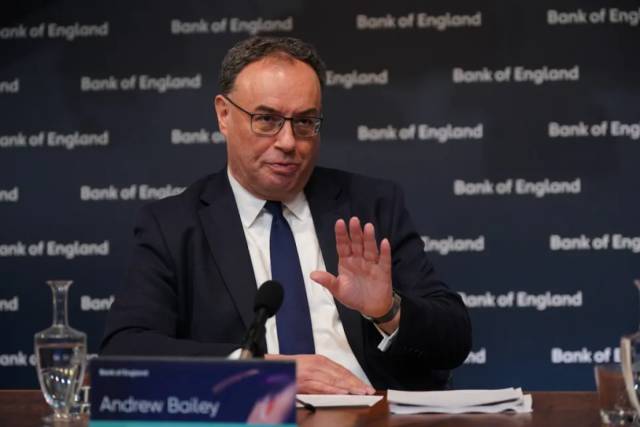UK inflation expected to fall below two per cent target.
Analysts at Barclays said headline inflation could come in at 1.7 per cent.
UK inflation out this week is tipped to fall below the Bank of England’s two per cent target for the first time in more than three years, according to economists.
Official data from the Office for National Statistics, due to be released on Wednesday, is expected to show annual consumer price inflation fell to 1.9 per cent in September from 2.2 per cent in August.
That would be the first time inflation has fallen below target since April 2021, and will likely add to calls for UK ratesetters to lower borrowing costs at their next meeting in November.
Both the European Central Bank and US Federal Reserve have loosened monetary policy more aggressively than the BoE after positive news on inflation, with the ECB expected to make its third rate cut in four months on Thursday.
Such a move could create momentum for further monetary easing among the West’s other major central banks. Just one ECB official, Slovakian central bank governor Peter Kazimir, has publicly argued against cutting rates this week.
Economists expect UK inflation in September to be lower than the BoE’s forecast of 2.1 per cent, helped by a steep decline in energy and oil prices last month. The number has steadily fallen from a peak of 11.1 per cent in October 2022.
Analysts at Barclays said headline inflation could come in at 1.7 per cent in September. Meanwhile, Deutsche Bank estimated a figure of 1.8 per cent, which chief UK economist Sanjay Raja called “a new cyclical lowâ€.
BoE governor Andrew Bailey suggested earlier this month that policymakers could be a “bit more aggressive†in cutting interest rates if inflation continued to moderate. However, he cautioned that the central bank would not lower borrowing costs “too far or too fastâ€.
The comments were seen as slightly more dovish than his previous guidance had implied, prompting markets to now expect two cuts, rather than one, by the end of this year to take rates down to 4.5 per cent.
Policymakers in August lowered borrowing costs for the first time March 2020 but opted to hold rates at five per cent in September.
Although Britain’s GDP returned to growth in August, after two consecutive months of stagnation, it only rose by 0.2 per cent – bolstering the case for further cuts.
Still, inflation is expected to rise over the coming months, driven by increases in household energy prices and the cost of oil amid conflict in the Middle




No comments yet
Be the first to share your thoughts!